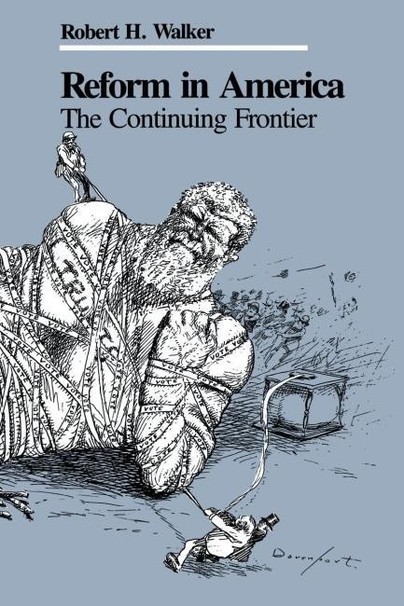Google Books previews are unavailable because you have chosen to turn off third party cookies for enhanced content. Visit our cookies page to review your cookie settings.
Reform in America (Paperback)
The Continuing Frontier
Imprint: University Press of Kentucky
Pages: 280
Illustrations: Illus
ISBN: 9780813155302
Published: 15th July 2014
Script Academic & Professional
Pages: 280
Illustrations: Illus
ISBN: 9780813155302
Published: 15th July 2014
Script Academic & Professional
This book will be reprinted and your order will be released in due course.
You'll be £27.00 closer to your next £10.00 credit when you purchase Reform in America. What's this?
+£4.99 UK Delivery or free UK delivery if order is over £40
(click here for international delivery rates)
Need a currency converter? Check XE.com for live rates
(click here for international delivery rates)
Need a currency converter? Check XE.com for live rates
"In discussing slavery and woman's rights, social security and the graduated income tax," writes Robert Walker, "the reformers have defined and redefined America." Recognizing in the history of reform a prime source for the discovery of cultural priorities, Walker seeks in Reform in America to organize the reform experience in a new way, so that its collective patterns can be seen.
Reform in America identifies three principal streams of reform advocacy in American history. Politico-economic issues, the mainstream of reform, are exemplified by a detailed study of the politics of money from 1832 to 1913. Reform on behalf of special groups, the second major category, is illuminated by the examples of movements on behalf of blacks and women and by an examination of the civil liberties and civil rights movements, which again have been principally concerned with the extension of rights and liberties to particular groups. A third category is established by connecting communitarianism, utopianism, and visionary planning to form a tradition through which ideal alternatives are offered to the existing social order.
Walker's interpretation minimizes the stark contrasts in social activity and underlines those continuous forces that have moved American society steadily in the direction of broadened political participation, increased concern for special groups, and a dynamic sequence of cultural goals. He thus draws our attention to what may be America's most lasting frontier -- the management of social change toward certain general objectives. The appreciation of reform, in the end, requires an adjusted perception of the national character, one that sees competitive individualism as at least balanced and perhaps outweighed by a demonstrated preoccupation with the common weal.
Other titles in University Press of Kentucky...















